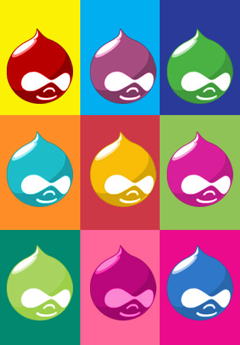 The Drupal Association mission is to unite the global open source community to build and promote Drupal. One of the most impactful ways to achieve this is through Drupal.org. Over the last two years, our Engineering team made great strides making the site’s technical stack more performant and rolling out various new features and improvements, such as contribution credits, new version of testbots, improved registration workflow, and many more. And we are not going to stop. It’s imperative that we give users a faster and easier journey towards adoption, community connection, and contribution.
The Drupal Association mission is to unite the global open source community to build and promote Drupal. One of the most impactful ways to achieve this is through Drupal.org. Over the last two years, our Engineering team made great strides making the site’s technical stack more performant and rolling out various new features and improvements, such as contribution credits, new version of testbots, improved registration workflow, and many more. And we are not going to stop. It’s imperative that we give users a faster and easier journey towards adoption, community connection, and contribution.
With a November 19, 2015 release date for Drupal 8 coming soon, it make sense to improve the download experience. This much anticipated release will create a surge of traffic and downloads including many who are new to Drupal and just starting their journey towards adoption and contribution.
Improving the Drupal.org Download Experience
The download experience today is lacking clarity and context. It is focused on providing the file, but it is not clear about what you are downloading, which version is right for the visitor, how to find the release notes, and what to do next. We also have limited data insight into what kind of audience is downloading the software, making it hard to provide the best educational context on the page.
In time for the November 19th Drupal Release date, we will launch the first iteration of the improved download experience. As we learn more, we will continue to improve the experience. For this first iteration, we will improve the content on the page, give visitors more context and clarity, and we will give more weight to the call to action. That’s a strong mission win for the Association.
Helping Drupal.org pay for itself
With this set of improvements we are also creating an opportunity for companies that frequently work with Drupal to highlight how they extend or enhance Drupal. We looked to other open source download experiences for inspiration such as Ubuntu and SensioLabs, who use this funding approach. We also leveraged our learnings from this past year of creating Drupal.org digital opportunities, making sure that our approach aligns with community values. By integrating messages from key partners, we are both creating a way for Drupal.org to help pay for itself as well as providing more context and quality to the download experience. And of course, we’re doing all that guided by our values and policies.
The Importance of Iteration
We’ll be launching our first version of this improved experience in conjunction with the Drupal 8 launch. We want to stress that this in no way represents a “finished” product. We’ll use your feedback and actual user data to inform ongoing improvements. This aligns with how we work n Drupal.org: launch a feature, listen and learn from users, then iterate on that feature. We will continue to evaluate this feature to ensure that it meets both community and Association business needs.
Next steps
We are very excited to find ways to both improve the Drupal.org experience and fund the work we are doing there. This first iteration will teach us a lot and we will use this to opportunity to better understand how to serve our visitors. If you want to follow this process and share your experience, follow the related issue.
Flickr photo: mortendk
